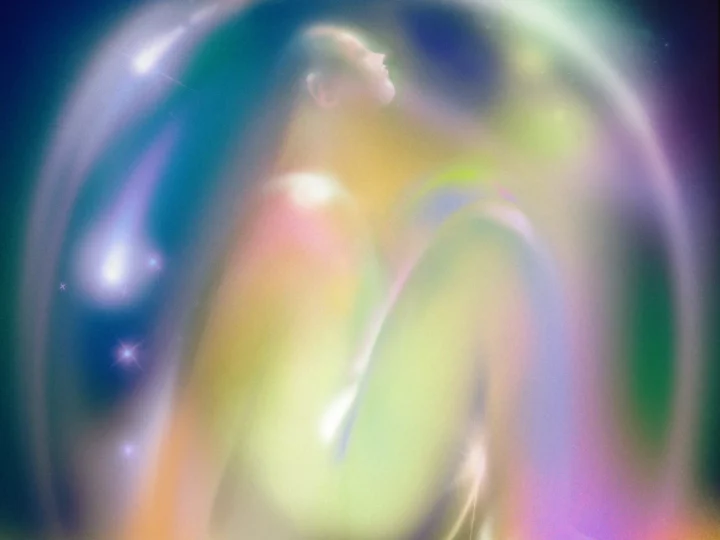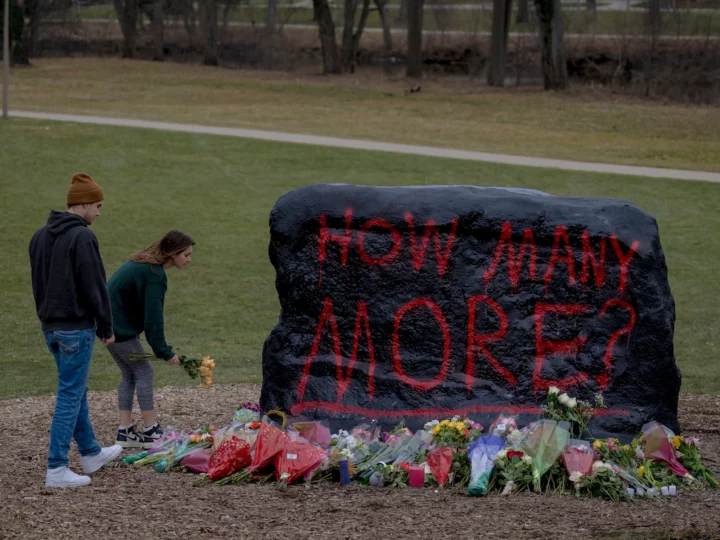Obsession: Jennifer Boylan on Lost Loves
Thursday, May 1 at 9 PM
At Chez Andre in the Standard Hotel (5th St at Bowery)
It must be awkward for renowned memoirist Jennifer Boylan to talk about memories she doesn’t mean to summon. Memories of lost loves – girls from her youth – that invade her thoughts and wake her in the night. But that’s exactly what the bestselling author and LGBT activist and will be doing at this year’s PEN World Voices Festival. Tomorrow night, in the cool and casual bar below The Standard Hotel, Boylan will take the stage to address her obsession – with a series of new writing (and songs?!) – about the two specific girls, who she dated, back when she was not only young, but still a young man. Handpicked by sex-advice guru Dan Savage to participate in this year’s Obsession series, Boylan, who rocketed to literary stardom in 2003 with her autobiography She’s Not There: A Life In Two Genders, sat down, recently, to discuss the upcoming event with Brightest Young Things’ Ian Allen…
Q: Tell me about your Obsession? Why did you choose it?
A: So, there are two people that I went out with in my teens and twenties who I frequently dream about. And they are not necessarily the people who I necessarily had the longest relationships with. They’re not the people who I had the most profound relationships with. Neither of them are people who I’ve seen in – oh over twenty years, I think – and yet here are these two women, whom I adored when I was a man. And I often wonder – I’ll wake up from a dream – and wonder, Why am I thinking about her? Why is she still… – it’s like she’s stalking me. … So the piece that I’m doing – there are monologues, about these two women. There are songs that I’m singing. I think I’ll be playing the autoharp. (laughs) Because I clear the room if I can. It’s kind of a writer’s attempt at a philosophical inquiry into lost love and why we hang on to the memories of a relationship. Even when the relationship itself is, at this point, an historical artifact.
Q: Can you tell me a little bit about them? I assume you’ll be giving out their names and numbers at the event…
A: (laughs) Yeah, I’m giving them both pseudonyms. One of them is a girl I went out with in high school – one of the first great crushes that I had. I call her Willow in the piece. I’m calling the other girl Donna. We dated when I was about 20. I met her in London when I was a student there – and I continued to see her when we came back to the states – into my senior year. … There is a tension between the universal nature of thinking nostalgically about some of the people we loved when we were young – and also a very specific aspect of that inquiry when you’re a transgendered woman like me. So, that part of it is not universal. But there is something about young love that is very specific. When you’re young, you’re in the process of becoming whoever you are. So I think we look to people we are in love with when we are young – as part of the process of becoming ourselves. If you’re in your 50s, like I am – if I began a new relationship with somebody, I think I would essentially continue to be myself. I would be recognizably myself. Whereas if you’re 17 or 25, there is a sense that the relationships you have are formative, are part of the process of inventing yourself. So I think that maybe that is the thing that haunts me – that these young relationships were wonderful, not only because of the goofy moon-eyed state you get into when you’re a young person in love, but that part of the mystery of who you are is being revealed through that process. And so, as a transgendered woman, back then, when I was a boy, I was really struggling with, well with everything in a way, and I think my theory was that if I were only loved deeply enough, or if I were able to love someone else deeply enough, it would make me content to stay a boy. It would make me someone better. It would get me out of myself. And I think that is a fairly universal hope. Even though it turns out not to be true. We all have, at times in our lives, the false hope that falling in love with someone will make us into someone better. (laughs) At least it did for me. But in the end, I think people are who they are. And no one is transformed by love. At least, not in that way. For me, what finally did happen is that when I did fall in love and get married, falling in love was not the thing that made it possible for me to stay a man. Falling in love was the thing that made me have faith enough that I finally could come out and become a woman. So love did save me. But not in the way I expected.
Q: There’s an old joke that any story you tell more than three times becomes a fiction. If that’s true, how do you reconcile those kinds of fictions?
A: I don’t necessarily agree with that. As a writer of both memoir and of fiction, I’m aware that there is a line you cross. I don’t think it’s as clear as anyone would like it to be. But I think I’m perfectly capable of telling a true story more than three times. (laughs) There’s that old John Ford thing from The Man Who Shot Liberty Valance – When the myth becomes a legend, print the legend. But, one of the ways people make sense of their lives is by telling stories. The stuff of life is a complete cacophony – baby diapers, the Russian army, a Gatorade, and the poetry of John Keats. Things happen to us every day that don’t seem connected. The way we make sense of our lives is by seeing the narrative of our lives. And telling stories of our lives is a way of imposing order in our lives. The facts of a story are true no matter how many times you tell them. But the narrative changes depending on how you remember things.
Q: It sounds like the memories of these two women are sticking around without, you know, asking your permission.
A: In some ways it’s very embarrassing for me. I’m 55 years old. I’ve been a woman for at least 12 years. I’m very happily married. I have two nearly grown sons. I wake up from a dream and I’m thinking about a girl that I went out with when I was 20. I don’t think I’ve seen her since I was 21. So, it’s more than half a lifetime ago. So, what do they want from me? Or, what do I want from them? I googled Willow the other day and found a photograph of her, nearly unrecognizable from the girl I went out with when we were 17, but there she was. … I think part of it is about the permanence or impermanence of identity. If you think about who you were when you were 17, or when you were 5, obviously you are not the same person that you were then, you are transformed in nearly every way. Except that you are still the same person. You have those memories. There’s an old joke about the New England farmer who says, This is a great shovel I have, it’s going to last forever, I’ve replaced the blade three times and the handle four times. So, on one level you think, It’s a great shovel. On the other hand, we’re all like that. Our bodies change as we get older. Telling stories is how we make sense of it.
Q: Do you think bad experiences stick with us longer?
A: (laughs) Oh I’m sure. I think stories that are unsettling stay with us longer than stories that make perfect sense. You can only read a Sherlock Holmes story a second time, for pleasure, if you have no memory. Because you alreay know the solution. So, unless you are the type of person who just forgets how mysteries work out, you lose the pleasure in those stories. Not to sound too pretentious, but, life is like a mystery that we are solving. And it’s the mysteries that we can’t quite solve – those are the ones we want to keep reading again and again. Maybe that’s why, in my dreams, I keep coming back to these women – maybe there are clues that I’ve missed.
Q: So what do you think is the purpose of these stories?
A: Maybe it’s like your younger self is passing a torch to your older self. Reminding you that, Yes, when you were 20, you stayed up all night long with a girl, walking through the streets of London, as the fog rose up around your ankles from the cobblestones, and the bells of a church chimed and it was like you were some mythical angelic being. That’s a pretty cool experience to have had. And, maybe my young self wants to remind my older self that life is capable of exactly that kind of fire.




